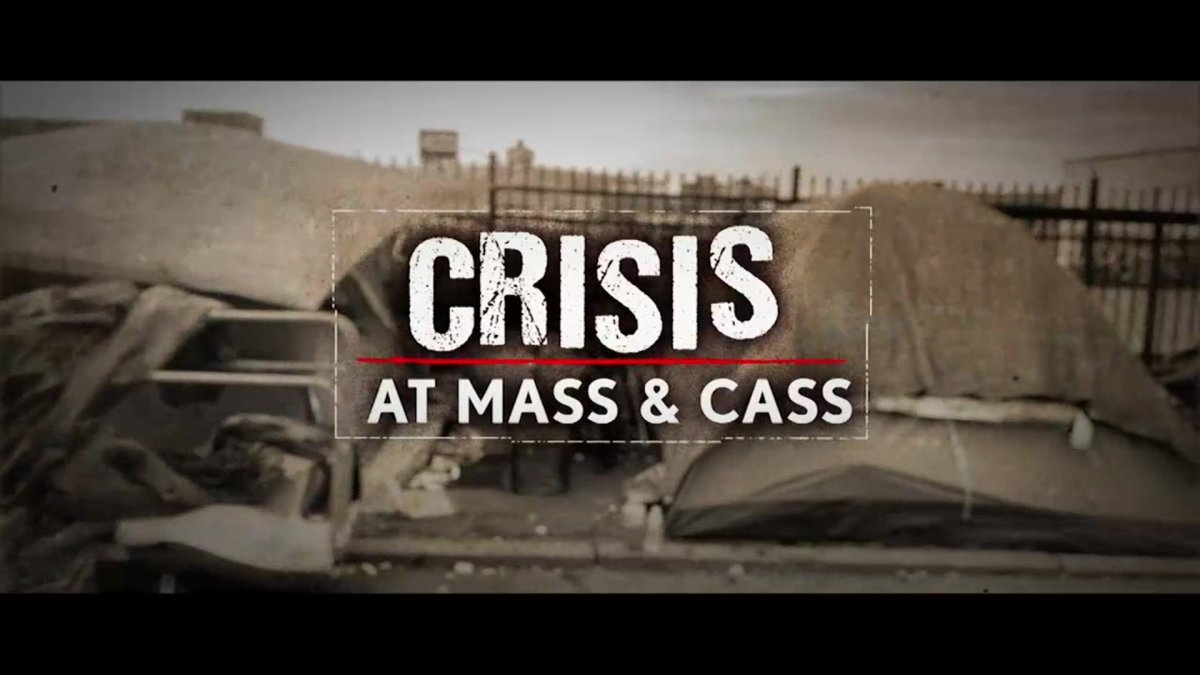
We spent three weeks in the area of Mass. and Cass following the people that live there.
Encampments near Mass. and Cass are being cleared as part of outgoing Boston Mayor Kim Janey's executive order, a first step in tackling a public health crisis that started with six tents and ballooned to almost 200 in less than six months.
Our investigators spent weeks following people struggling on the streets.
"What you see is what you get. Every day is the same thing. It's like 'Groundhog Day,'" said Ronald Geddes, a former construction worker living in a tent for the past few months on Southampton Street.
Get New England news, weather forecasts and entertainment stories to your inbox. Sign up for NECN newsletters.
It's near the intersection of Massachusetts Avenue and Melnea Cass Boulevard, which gives the area its name.
"You can't make anything permanent. You have to build it so, if you have to move it, you can use it again," said a woman named Kitti.
She's unhoused for the first time, and worries for her safety and possessions.
"You have to worry about looking over your shoulder, sleeping with almost everything valuable that you have, either, like, in between your legs or under your pillow," she said.
The encampment is where homelessness, addiction and the struggles of the mentally ill converge.
More on Mass. and Cass
Sue Sullivan, with the Newmarket Business Association, has seen the number of tents explode this year.
"We went from six tents in June to 90 tents in July to 180 last week," she said.
During the COVID-19 pandemic, services for mental health and addiction across Massachusetts were shut down, causing people to flock to Boston for help. The city centralized most of its services in the area of Mass. and Cass.
Chrissy Joubert and Bob Morgan do outreach in the area through their nonprofit Project Do Something.
They come down to the engagement center located on Atkinson Street every Wednesday to hand out hundreds of sandwiches to the people living in the encampment.
Joubert says the sandwiches are really an olive branch to find out what they really need.
"Some of them are just ready to get off the street and they need a place to go. You know the detoxes right now are understaffed. There's not as many beds,” she said.
With almost 500 homeless people in early October, the encampment turned into an unsanitary and unsafe city of tents.
On Oct. 19, Janey declared a public health crisis tied to homelessness and addiction in the city, outlining steps to clear tents from the streets. Street by street, people are being offered storage for their belongings and space in shelters or housing.
But Rep. Jon Santiago, who represents the area in state legislature, says other communities in Massachusetts need to be part of a permanent solution.
"I think if you have the state engaged along with the city, along with regional partners, we can come up with a solution," he said.
Santiago added that the solution must also include more recovery and mental health services.
"Right now, we're living in a unique time with a significant amount of federal funding coming down to the city and to the state. And so we're in a unique position to apply those service funds to this issue and not just federal public funding, but also the opioid settlement that we just have," he said.
Those millions can now fund efforts to decentralize the crisis, Santiago said.
But without that investment, Geddes isn't hopeful that another encampment won't pop up again elsewhere in Boston.
"It's like putting a Band-Aid on something that needs stitches," he said.